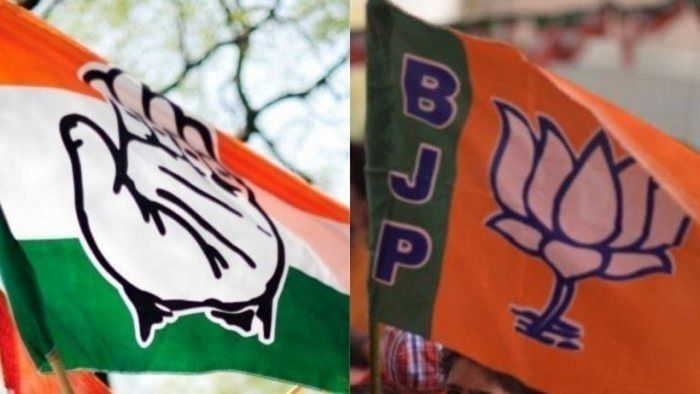
The BJP, through a political resolution on the first day of its National Executive meet in Delhi, said India has emerged as the "voice of the Global South" due to the efforts of the Modi government, even as it trained guns on the Opposition for taking personal potshots at the PM.
The Opposition has continuously attacked the BJP over several issues, including the "misuse" of the snooping software Pegasus and the Enforcement Directorate on Opposition leaders, over demonetisation and the revamping of the Central Vista, the resolution stated.
The resolution, which listed nine key points, was proposed by Union Law Minister Kiren Rijiju and seconded by Karnataka Cabinet Minister Govind Karjol and Uttar Pradesh Deputy Chief Minister Keshav Prasad Maurya. The proposing of the resolution by Rijiju, who is in the middle of a verbal tussle with the judiciary, points at his increased stature within the party.
Briefing reporters on the resolution, Union Finance Minister Nirmala Sitharaman said the Opposition ran a "negative campaign" and used "abusive language" against the PM. Six such key issues, she said, reached the Supreme Court. "Each time the judgement has been in the favour of the central government. The Supreme Court has crushed the Opposition's negative campaigns and exposed them through legal responses," Sitharaman said.
Also Read | Govt 'intimidating' judiciary with view to 'capture' it: Congress on Rijiju's letter to CJI
The six issues, Sitharaman said, were allegations of kickbacks in the Rafale deal, the snooping of politicians through Pegasus, the use of ED as a money-laundering tool, the revamping of the Central Vista, reservation based on economic parameters and demonetisation.
Another key resolution was the praise that president JP Nadda received for his efforts in the recently-concluded Assembly elections, in an indication to an extension that he is set to receive. Nadda's tenure as the party president ends this month, but the party is likely to retain him till 2024.
The party's win in Gujarat, where it won more than 150 seats despite being in power for 27 years, was termed “historic” by the resolution. Sitharam said that the party won 11 of the state’s 13 seats reserved for Scheduled Castes, 23 of the 27 seats set aside for tribals, in addition to 19 seats among the 21 in the Ahmedabad region, all 16 seats in the Surat region, and nine of Vadodara’s 10 seats.
“We have turned anti-incumbency to pro-incumbency,” Sitharaman said. She added that in Himachal Pradesh, they could not turn the tradition of voting a new government to power every term, but noted that the difference was less than 1 per cent.
The party, she added, has set a target for winning all the assembly elections in 2023.
India’s image in the world stage its stature in the G7, G20 and SCO, as well as in the case of UN reforms were lauded, and Sitharaman said that the outgoing G20 president, Indonesia, in their parting communique noted Modi’s call for this being “not an era for war”. “India has emerged as the voice of South Asia, and the voice of the Global South at large,” Sitharaman noted.
Modi’s Mann Ki Baat radio programme found mention in the resolution, where the party lauded the “non-political platform” that has been built as a “permanent bridge” by the PM to reach out to the people. The resolution noted the PM’s decision to institute the Veer Shaheed Bal Diwas on December 26 in memory of Sahibzada Zorawar Singh and Sahibzada Fateh Singh, the martyred sons of the 10th Sikh Guru.
The government’s Har Ghar Tiranga Abhiyaan and the Kashi Tamil Sangam were also mentioned; the government had managed to unfurl 30 crore flags across India over a target of 20 crore flags. The PM’s role in “increasing the development of places of culture and spiritual heritage” such as the Ram Temple in Ayodhya, the Mahakaleshwar temple in Ujjain, the development of Buddha and Ram Circuits etc, were praised.